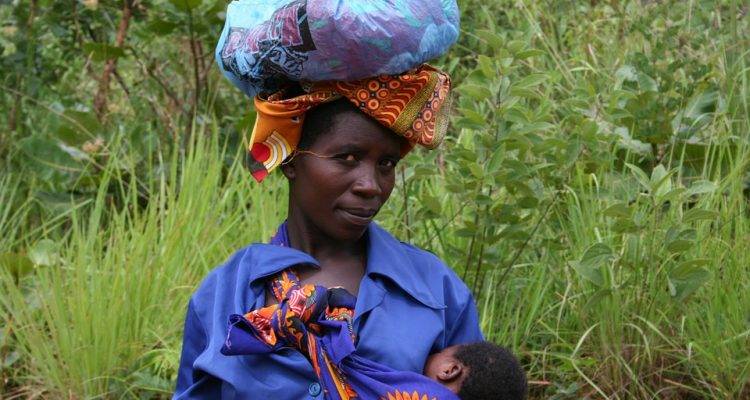Dans son petit bureau situé au deuxième étage du ministère rwandais de la santé, Eric Gaju dirige un département pionnier en matière de santé connectée. Depuis 2009, il coordonne l’initiative RapidSMS, la première application africaine d’e-santé à avoir durablement inversé les chiffres de la mortalité infantile et maternelle d’un pays tout entier. Une sorte de « M-Pesa » de la santé (le système d’argent mobile d’origine kényane est utilisé par près de 30 millions de personnes), qui a sauvé la vie de 590 000 bébés rwandais entre 2009 et 2015, selon un décompte établi en 2016 par le Fonds des Nations unies pour l’enfance (Unicef).
Comment a démarré le projet RapidSMS ?
Eric Gaju En 2009, le taux de mortalité des bébés rwandais de moins de 1 an était très important, de l’ordre de 47 décès pour 1 000 naissances vivantes. Constatant l’essor rapide du taux de pénétration mobile, y compris dans les collines les plus reculées, le ministère de la santé a décidé d’expérimenter la pratique de la télémédecine en partenariat avec l’Unicef, en vue d’abaisser notre taux de mortalité au niveau de la moyenne internationale. L’Unicef a mis à la disposition de notre ministère des consultants spécialisés en e-santé pour nous aider à développer un premier prototype en partenariat avec des entreprises technologiques rwandaises. L’objectif poursuivi était de permettre à des agents communautaires recrutés dans les villages de signaler par SMS tous les cas de grossesses à risques aux hôpitaux les plus proches.
Où avez-vous démarré les tests ?
Nous avons démarré nos premiers tests dans plusieurs villages isolés du district de Musanze, qui se trouve dans une région enclavée du nord du Rwanda. Il y a là-bas de nombreuses collines et il est très difficile pour les habitants d’avoir accès à des soins médicaux. Nous nous sommes dit que si RapidSMS parvenait à réduire les mortalités infantile et maternelle dans ce district, nous pourrions alors répliquer cette technologie dans toutes les régions du Rwanda. Après six années d’expérimentation suivie d’un passage à l’échelle à l’ensemble du pays, RapidSMS a fait tomber à 31 le nombre de décès pour 1 000 naissances vivantes en 2015, soit juste en dessous de la moyenne internationale.
Comment les agents communautaires utilisent-ils cette application ?
Le ministère de la santé recrute dans chaque village trois agents communautaires – généralement deux femmes et un homme – qui sont entraînés à reconnaître et à signaler par SMS les signaux avant-coureurs de complications chez les femmes de 15 à 49 ans en âge de procréer. Les agents travaillent en coordination et s’échangent des informations entre eux. Chaque problème est identifié puis signalé aux services d’urgence ou au médecin d’un hôpital voisin qui peut alors intervenir. Les agents communautaires se voient remettre une liste de codes sous la forme d’acronymes qui correspondent aux différents types d’affections à signaler au plus vite : hémorragie, fièvre, malnutrition… Ainsi, le shortcode RED, par exemple, signifie que la patiente se trouve dans une situation d’urgence vitale. Le shortcode NP, pour « No Problem », permet de constater que la grossesse se déroule dans de bonnes conditions.
Quel est l’avantage de disposer d’autant de données en temps réel ?
La masse de données transmises par SMS permet aux hôpitaux concernés d’anticiper avec précision le nombre d’accouchements attendus dans les deux prochaines semaines et donc aux services concernés de s’organiser en conséquence. Par exemple, si 50 accouchements sont attendus la semaine prochaine, les services médicaux concernés feront en sorte d’avoir le personnel disponible nécessaire à cette période. Le niveau de précision des informations transmises par les agents communautaires permet également aux médecins de repérer, parmi les 50 accouchements attendus, lesquels peuvent s’avérer compliqués et donc de prendre un certain nombre de dispositions à l’avance.
Avec combien d’agents communautaires travaillez-vous aujourd’hui ?
Le ministère de la santé a recruté et formé à ce jour 45 000 agents répartis dans environ 12 000 villages à travers tout le Rwanda. Les agents communautaires ne sont pas désignés par le gouvernement mais élus par la communauté villageoise et sont rémunérés en fonction de la qualité des informations remontées par SMS. Les téléphones mobiles sont fournis par le gouvernement à chaque agent communautaire. Le gouvernement assure également l’entretien de ses téléphones.
S’agit-il de smartphones ?
Pour RapidSMS, nous utilisons des téléphones portables basiques, cela suffit amplement pour envoyer des SMS et pour fonctionner pendant plusieurs jours, même en cas de coupure de courant. Nous n’avons pas besoin de smartphones et nous faisons attention à ce que les technologies qui viennent de l’extérieur correspondent à nos besoins et soient adaptées à nos contraintes. Je donne un exemple : un jour, la Corée du Sud est venue nous voir pour nous proposer d’équiper nos agents communautaires avec des smartphones dernier cri de la marque Samsung. Or un smartphone se décharge en une journée et dans les zones reculées du Rwanda, il n’y a pas d’électricité. Par pragmatisme, nous avons donc décliné cette offre.
L’application RapidSMS est-elle payante ?
L’application est entièrement gratuite et les coûts sont pris en charge par le gouvernement. Par ailleurs, RapidSMS est une application qui a été entièrement développée au Rwanda grâce à des logiciels libres Open Source. Ce qui signifie que n’importe qui peut télécharger l’application et la contextualiser en fonction des besoins particuliers. Par exemple, en Zambie, RapidSMS a été entièrement « customisée » avec de nouvelles fonctionnalités pour permettre au ministère zambien de la santé de lutter contre la malaria.


Leave a Reply